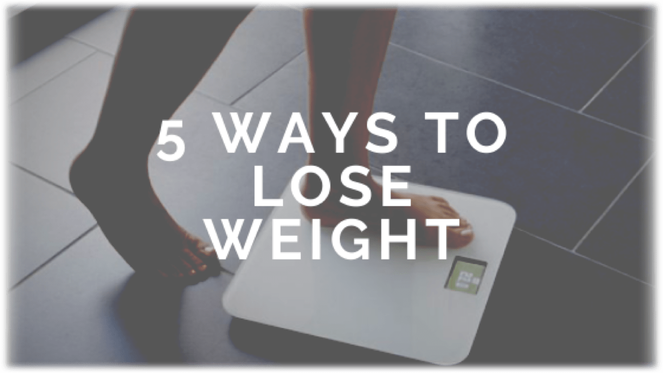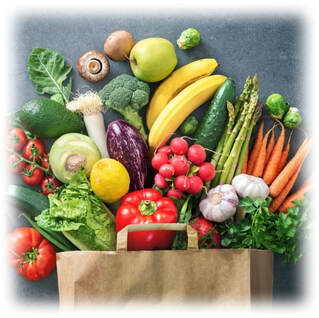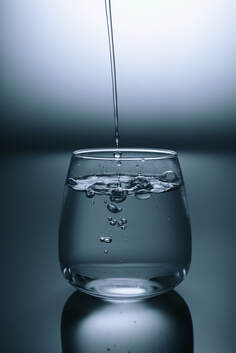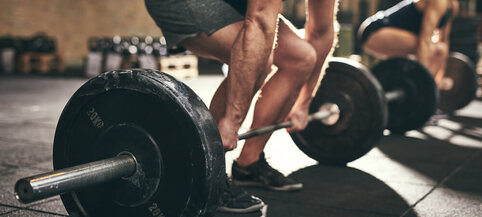Optimise Your NutritionThe sources of food that you decide to fuel your body with are absolutely central to weight loss. Your body composition and overall health is highly reflective of what you put into it. Therefore, to lose weight it’s crucial that you’re aware of how to structure a healthy & nutritious diet. Here's a few tips on how to do so. Firstly, reduce your intake of refined carbohydrates (cakes, biscuits, pastries, cereals, white bread). These are foods that are quickly converted to glucose and absorbed into the bloodstream. Resultantly, insulin is produced. Insulin allows the glucose to be stored in the muscle cells & the liver as glycogen - a form of stored energy for later. Once these two storage sites are topped up, the body resorts to storing any excess glucose as fat. So, when you consume refined carbohydrates - particularly in excess - you're increasing the demand for insulin production, and therefore increasing lipogenesis - the conversion of glucose to fat. This isn't to suggest carbohydrates are bad. Complex carbohydrates (derived from natural whole food sources, such as vegetables) are essential in the diet due to their nutritional value & the energy they provide us with. You should therefore attempt to ensure that the vast majority of your carbohydrates are coming from these sources. Basically, eat loads of vegetables - a broad variety of them. Sufficient protein intake is also highly crucial to optimal health and weight loss. Protein is necessary for growth & maintenance of our body tissues & allows necessary biochemical reactions to take place within the body. Like all macronutrients, you should seek to attain protein from high quality food sources. Good options include lean meats, poultry, nuts & seeds, and dairy. Finally, fat. Fat is essential for several metabolic processes and has to be included in the diet - ignore any advice telling you otherwise. Don't opt for any food product marketed & labelled as 'low fat'. These products are simply playing on the general public's belief that fat is bad & therefore low fat is healthy - a fallacy. The key is to be getting the right kind of fats into the body from nutritious sources - fish, organic meats, avocados, olive oil, dairy (grass fed butter, plain yoghurt). For more on fat and some great ways of getting more into your diet, check out my article on healthy fats. Consume Consciously.Equally as important as what you eat is the quantity of it. Ultimately, to lose weight your body needs to be operating in a calorific deficit. All this means is that you need to be using up more calories than you are consuming. It's relatively straightforward, however not many people tend to enjoy meticulously counting calories on a daily basis. Instead, it can be helpful to apply a traditional practice used by the people of the island of Okinawa off of Japan. There it's customary to eat until you are 80% full (approximately). Another way of restricting your food intake is by simply employing more mindful eating practices. Before you head to the fridge or cupboard looking for snacks, think to yourself, "Am I actually hungry or am I just bored/looking for some kind of food-derived satisfaction". Additionally, there are a couple of behaviours you can look to implement into your pre-feeding and mid-meal consumption. Prior to consuming your meal, put aside all distractions - your phone, the TV, the kids - whatever it is. Take 1-2 minutes to sit there and simply breathe. Doing so helps prepare your body for optimal digestion. Once you start your meal, chew your food (more than you would typically). A lot of us have a tendency to simply want to inhale our meals as quickly as possible. Studies have shown that by chewing our food more, our satiety increases. Therefore more chews = less potential food intake. Drink More Water
Sleep MoreThe quantity & quality of our sleep has huge implications on weight loss, both directly and indirectly. First, directly. With too little sleep, a stress hormone called Cortisol is triggered. Cortisol signals to your body to conserve energy to provide you with fuel whilst you’re awake. Basically, this means your body holds on to fat – you maintain weight. Remember what I was saying about insulin earlier? Well, with as little as 4 days of insufficient sleep, your body’s ability to process insulin becomes significantly impaired. To add to this, with a lack of sleep the balance of two key appetite related hormones is shifted; ghrelin signals to the brain that you are hungry, whilst leptin signals satiety. With insufficient sleep & poor quality sleep, ghrelin production is increased, whilst leptin production is reduced. This means that our brain is being told that we need to consume more calories - when in reality we don't. Indirectly, lack of sleep can lead us to making decisions that further prevent weight loss. When you’re tired, it becomes easier to excuse yourself from exercising, as well as opting for quick and easy food choices (e.g. takeaways). Additionally, when sleep deprived our brain has an increased demand for high-fat, high sugar food options - our way of getting excessive calories into the body. To learn more about the implications of sleep on weight loss, check out this article. ExerciseShock, exercise makes the list. As eluded to earlier, maintaining a calorific deficit is necessary for weight loss. Physical activity leads to the burning of calories, thus contributing to weight loss. Resistance training in particular has the potential to have significant effects on weight loss. This is down to the fact that not only do you burn calories during the activity itself, but it also increases your muscle mass. With increased muscle mass, we elevate our resting metabolic rate (the rate at which you burn calories while resting). With that said, when it comes to exercise your focus shouldn't be on the number of calories being burnt. Your typical 1 hour workout accounts for just a fraction of the calories you expend throughout the day. Exercise shouldn't really be viewed as a weight-management tactic. Physical activity is a standard part of a healthy lifestyle - which is ultimately the key to weight loss and good health. I highly recommend resistance training, but if you're just getting started, simply looking to raise your activity levels. Spend less time sat on the sofa, more time moving outdoors. There's No Quick FixWith the pure senseless instant-gratification that our society breeds, all too often we search for the quick and easy way to achieve our goal. Weight-loss isn't something you can shortcut your way to; extreme dietary plans aren't sustainable and are often actually harmful to your health. Like with any goal you wish to achieve, consistency & discipline are key. Adopt the right set of behaviours, incorporate them into your lifestyle sustainably, and over time results will come. If you're in need of greater direction along with some simple & effective ways of introducing healthy lifestyle habits into your daily life, be sure to get your copy of my free E-book "5 Hacks to Enhanced Health". |
Author
Christian Lawal Personal Training.
Personal training in Tunbridge Wells, Tonbridge & Sevenoaks. Archives
January 2024
|




